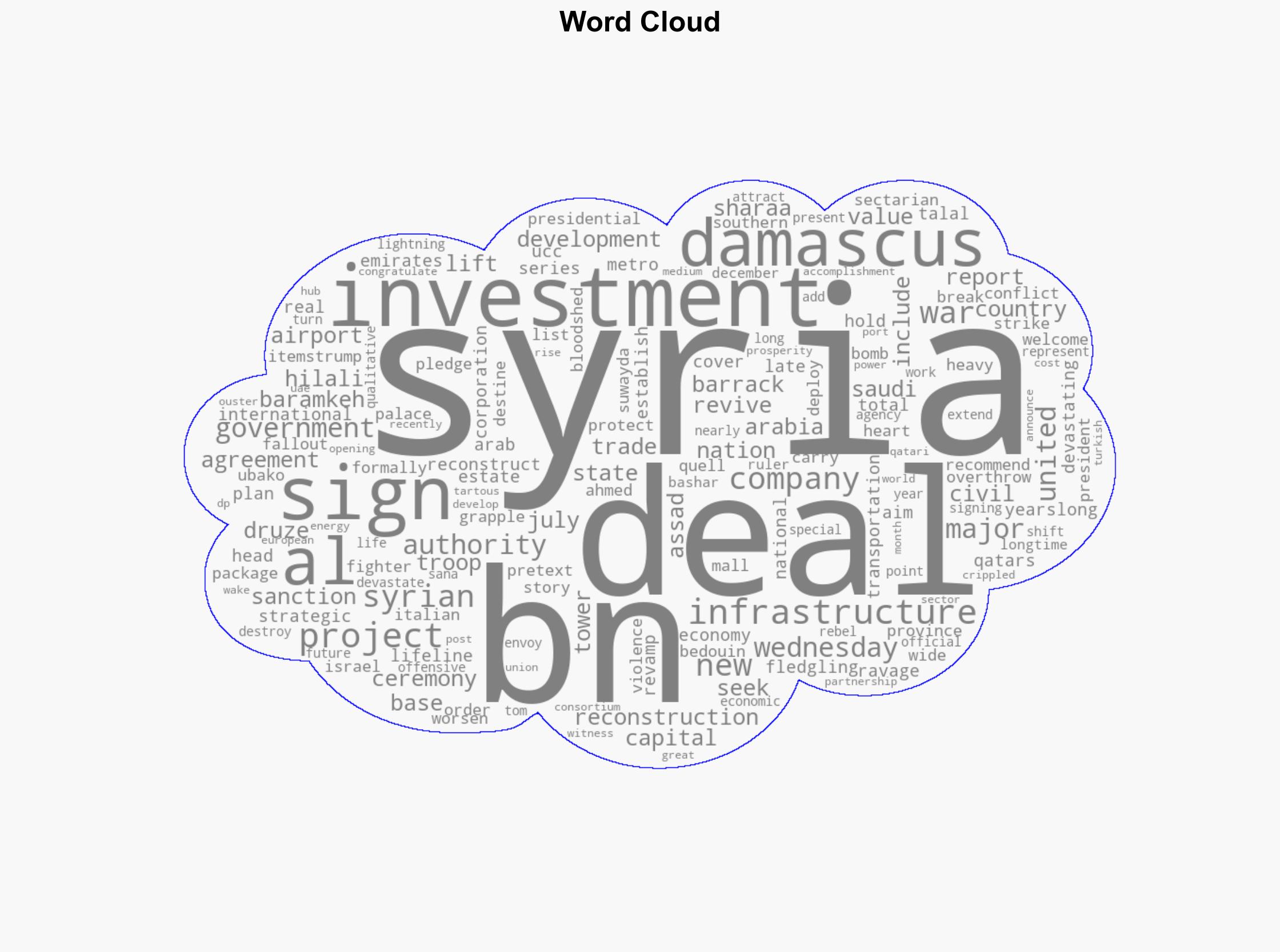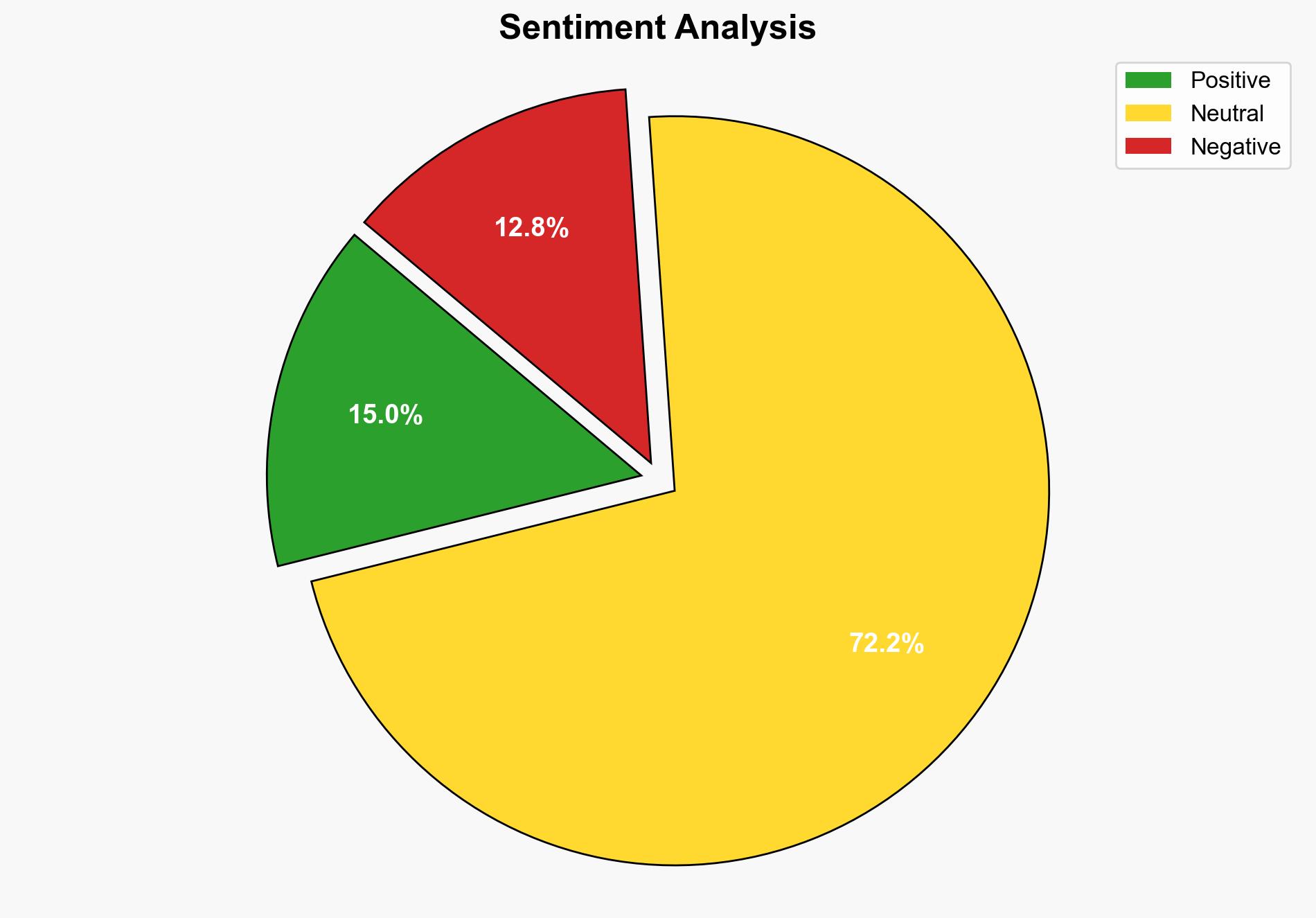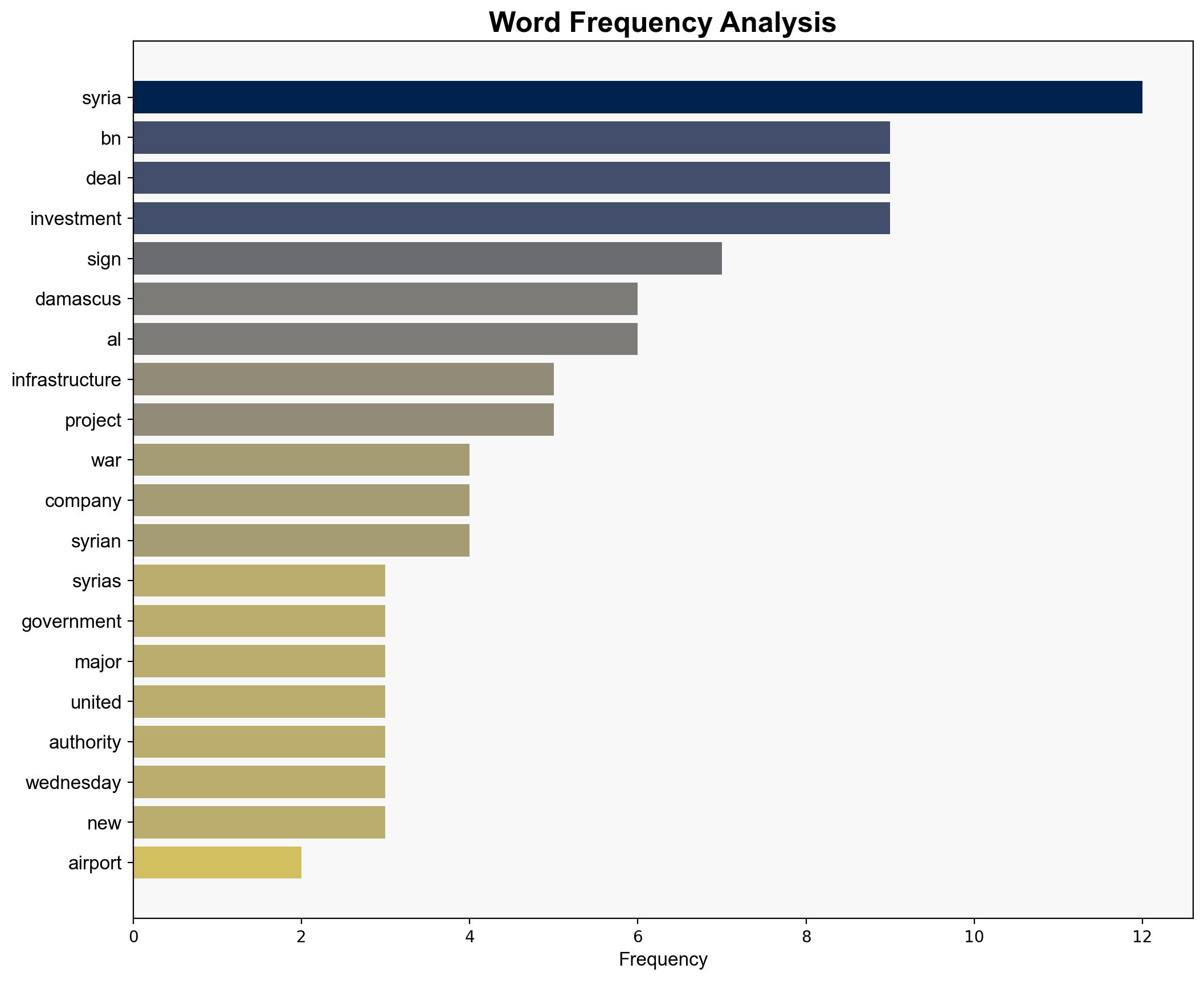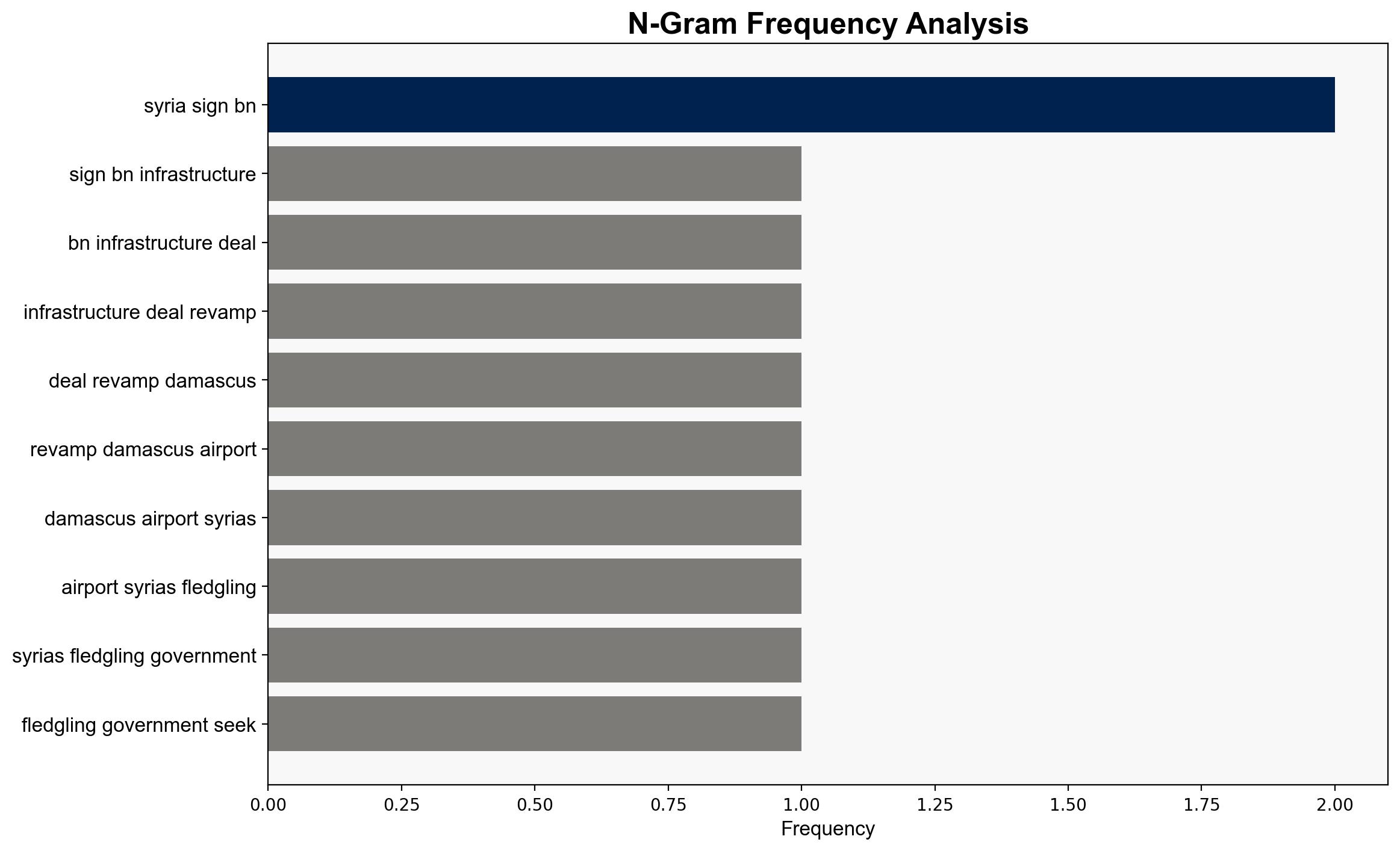Syria signs 14bn infrastructure deals will revamp Damascus airport – Al Jazeera English
Published on: 2025-08-06
Intelligence Report: Syria signs 14bn infrastructure deals will revamp Damascus airport – Al Jazeera English
1. BLUF (Bottom Line Up Front)
Syria’s recent $14 billion infrastructure deals, including the revamp of Damascus airport, signify a strategic effort to attract foreign investment and rebuild its war-torn economy. The most supported hypothesis is that these deals are primarily aimed at economic recovery and international reintegration. However, there is a moderate confidence level due to potential geopolitical and security risks. Recommended action includes monitoring the implementation of these projects and assessing the involvement of foreign entities for regional stability implications.
2. Competing Hypotheses
1. **Economic Recovery and International Reintegration Hypothesis**: The primary goal of these infrastructure deals is to stimulate Syria’s economy and reintegrate into the international community by attracting foreign investment and rebuilding critical infrastructure.
2. **Geopolitical Maneuvering Hypothesis**: These deals are a strategic move to strengthen alliances with specific foreign entities (e.g., Qatar, UAE) and counterbalance regional adversaries, potentially using economic reconstruction as a guise for geopolitical gains.
Using ACH 2.0, the Economic Recovery hypothesis is better supported due to the explicit focus on infrastructure projects and the involvement of multiple international companies, indicating a broad-based economic strategy rather than a narrow geopolitical agenda.
3. Key Assumptions and Red Flags
– **Assumptions**: The assumption that foreign investment will lead to sustainable economic recovery; the belief that international companies will remain committed despite potential instability.
– **Red Flags**: The presence of geopolitical tensions, such as Israeli strikes and sectarian violence, which could deter investment; potential over-reliance on foreign entities with their own strategic interests.
– **Blind Spots**: Lack of detailed information on the terms of the deals and the specific roles of involved companies.
4. Implications and Strategic Risks
– **Economic Risks**: Failure to implement projects could lead to further economic decline and loss of investor confidence.
– **Geopolitical Risks**: Increased foreign presence might provoke regional adversaries, leading to heightened tensions or conflict.
– **Security Risks**: Ongoing sectarian violence and external military actions could disrupt project implementation and threaten personnel.
5. Recommendations and Outlook
- Monitor the progress of infrastructure projects and assess the impact on Syria’s economic indicators.
- Engage with regional partners to ensure that foreign investments do not exacerbate geopolitical tensions.
- Scenario Projections:
- **Best Case**: Successful project completion leads to economic stabilization and improved regional relations.
- **Worst Case**: Projects stall due to security issues, leading to economic deterioration and increased regional isolation.
- **Most Likely**: Partial success with ongoing challenges in security and geopolitical dynamics.
6. Key Individuals and Entities
– Ahmed Al Sharaa
– Talal Al Hilali
– Tom Barrack
– United Development Company (Qatar)
– National Investment Corporation (UAE)
– Ubako (Italy)
7. Thematic Tags
national security threats, regional focus, economic reconstruction, foreign investment, geopolitical strategy





